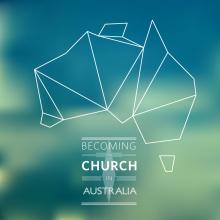Church

To the dying church,
Sometimes you have to get worse before you get better. You are dying because you’ve been applying band aids for a far deeper problem. You are consistently doling out superficial remedies for surface wounds when the source of pain lays untreated.
Church, you have confused biblical hope for optimism. When hurting people walk through your doors, you play the positive thinking guru and dispense quick fixes with inspirational quotes. You provide cheap grace and empty promises that are driving people out your doors.
You have mistaken confidence with certitude. When people come with authentic questions, you forsake healthy dialogue in exchange for a veneer of harmony. You post your doctrinal statements at your gates and demand unsure people to come in or stay out. The resulting homogenous bubbles you’ve created are sure to burst.
“THE CHURCH radicalized me,” celebrated author and ordained Episcopal deacon Denise Giardina once said, describing how she sees herself as both social activist and servant minister. “The phrase in the prayer book is ‘Interpret the world to the church and the church to the world.’ It’s a totally different way to advocate, with a spiritual point of view.”
This philosophy has shown up in her bestselling novels, published over her long career, such as Storming Heaven (1987) and The Unquiet Earth (1992), which chronicle the history and social impacts of coal mining in Giardina’s native Appalachia; Saints and Villains (1999), which tells the story of Dietrich Bonhoeffer’s resistance against Hitler and the Nazis; and, most recently, Emily’s Ghost (2010), a reimagining of Emily Brontë’s story and how her life was changed by her encounter with an ardent member of the clergy.
Shortly before her recent retirement from teaching creative writing at a West Virginia college, Giardina talked with Jason Howard, author of A Few Honest Words and coauthor of Something’s Rising, about her literary career, social justice activism, and her time in the late 1970s in Washington, D.C., as a member of Sojourners community (the intentional Christian community that founded Sojourners magazine and other ministries).
MY 5-YEAR-OLD daughter, Zoe, is in preschool. This means, as most parents of school-age children know, that there is a birthday party to attend approximately every other weekend of the year.
On the way to one of these myriad celebrations, we stopped by the church in downtown Portland, Ore., where my wife, Amy, is the senior pastor. She had a daylong meeting, and we needed to switch cars, as hers was the one with the gift in it.
As we came down the front steps of the church and onto the South Park Blocks, a local city park, we saw at least half a dozen emergency vehicles parked in a haphazard formation along the street and on the sidewalk in front of a small public restroom. Several officers were standing together, making calls on their radios and discussing the situation at hand. At their feet was what appeared to be a lifeless body, lying on the pavement underneath a blue tarp.
“Daddy,” Zoe said, “what are those police mans doing in the park?”
“I’m not sure, honey,” I said, “but it looks like somebody needed their help.”
“Is somebody in trouble?”
“Something like that,” I sighed. “Make sure you don’t drag that gift bag on the ground. We don’t want to mess up your friend’s present before we get to the party.”
My first thought was, God, please don’t let it be Michael. Michael is a man about my age who lives outside and wrestles daily with an addiction to alcohol, among several other things. We have helped him get sober, only to see him relapse. We helped him get into supportive housing, only to watch him get into a fight and get thrown back out onto the street.

Dear friend,
The diagnoses are grim. Fervent supporters and ardent critics of religion both point to your decline. An urgency, if not an all-out alarm, fills the air. There are those who hope beyond hope for your renewal and transformation. Others stand steadfastly by your side as they "wait and see." Still others wipe their hands of the whole ugly mess and leave you to your ever-more-inevitable demise.
I'm not sure what to do. But I know I love you.
I know that you have grown weary in a bewildering, fast-paced world less inclined to pause and listen in. I know you have clung to models of leadership, governance, and programming through which you reached prominence, but now seem sluggish in the world today. I know you have tried new methods and "relevant" techniques for attracting new life, but they did not pan out like you dreamed. I know you have been let down by ministerial leadership, and not just in the pulpit: in the boardroom, in the choir lofts, in the denominational office. In this time of shrinking attendance, recycled ideas, and diminishing resolve, I'm not sure what the magic cure is. Or if there ever was one. But I know I love you.
You left groceries on my family's doorstep when my parents could not make ends meet. You carried the weight of my family's grief when my sister drowned. You encouraged me when I felt so alone and afraid. You challenged me to live beyond myself and for those who are so often ignored. You surrounded me with gentleness and love on my wedding day. You gave me time-worn words and melodies to express the joy and lament of my spirit. You pointed to a holy feast big enough to include all of humanity, and you set a place at that table for me.
You introduced me to God.
FROM EGG FREEZING to genome analysis, desirous parents with sufficient funds these days have many choices for starting a family. But what about children born to parents who can’t care for them—at least not at the present time? With 400,000 children in foster systems across the United States and a quarter of them awaiting adoption, it is a pressing question.
Some evangelicals increasingly are taking their cue from a particular biblical passage in the first chapter of James, verse 27: “Religion that is pure and undefiled before God ... is this: to care for orphans and widows in their distress ...”
From this verse has come the “127 movement,” dedicated to supporting prospective foster families within a church community. Project 1.27 in Colorado was the first group founded under this banner back in 2004. Its goal was to provide the state-mandated orientation and training, from a Christian perspective, to potential foster parents. If a family ended up fostering or later adopting a child, then the movement’s members would serve as a support network.
“We had 875 legally free kids waiting to be adopted in Colorado and twice that many churches,” recalled Project 1.27 director Shelly Radic. “We thought, ‘Wow, that’s just not right,’ so we began to build relationships with county social services and child services at the state level, and then connect with churches and private agencies to set up training.”
Since foster systems are run by individual states, so too are these faith-based support movements.
“We do recruiting, orientations, and training. We’re not a placement agency,” explained Radic. “We follow state guidelines, invite people to come who might be interested in foster care and adoption, tell them about the trauma and the hard things the children may have experienced, help families see what their process would look like, and talk about building a support team as a high priority.”

Dear Church,
I received some distressing news today. Oh, I know you thought you’d kept it secret, but I answered the phone when the doctor’s office called to change your chemo appointment.
Chemo? Seriously? What, you thought I wouldn’t find out eventually? I know I seem preoccupied sometimes, but I’m not an idiot. I can see the signs.
I knew something was up when I saw you shrinking, little by little over time. Maybe other people couldn’t tell, but I suspected something bad was going on. You can paste on a smile, and listen to your happy music, and buy new stuff. But anyone who really knows you, realizes your body has been slowly betraying you.
Dying happens. I get that. What really makes me mad, though, is that you didn’t trust me enough to tell me. Maybe you didn’t know for awhile. I guess that’s possible. But the doctor had to have told you, right? I mean, at some point you decided to do something about it — if only to keep it a secret. And if you didn’t know, then you’re not who I thought you were.

Dear church,
Let me start off this letter by expressing my deep love and appreciation for you. I have been an active participant in the community of faith for about 10 years now, and I have been profoundly blessed, cared for, loved, and inspired to be a better human being through you. I have also seen — and even participated in — some of your ugliest and most unfaithful moments in recent history. But through all of these experiences, nothing but utter appreciation and love remains for you. I believe, in the words of Bill Hybels, that the church is the hope of the world. I believe in your great power and potential to renew and reconcile our broken world through the way of Jesus. I believe that you can do it. That we can do it, together.
With that said, there has been a lot of talk recently about your impending death. For a long time, I believed the hype. I saw the numbers of millennials who were walking away from the churches and both mainline and evangelical churches closing their doors. I was convinced that maybe the church had truly seen the end.
But I was recently reminded that what we have been witnessing in the West is not, in fact, the death of the church at all.

To the Dying Church,
I hardly know what to say. Watching someone you love, who helped raise you, who cared for you when you weren't well, who partially defined who you would be, slowly perish before your eyes is difficult to say the least. I love you. I don't want to lose you.
But, this is life. These things happens. Those you love do die. It's just how it works. I mean, there were churches before you. They may not have looked like you or sung songs like you or taught exactly what you do, but they all had Love – just different ways of expressing it. They changed people's lives. They made some people better people and, sometimes, they made people worse people. Then, they died.
In all of it, Love was there somewhere hoping to be valued, hoping to be expressed, hoping to be shared.
Standing at the foot of your bed as you struggle to hold on, fight to catch a few last breaths, is uncomfortable and wonderful, all at the same time. Remembering the twinkle in your eye from my childhood, the liveliness of your step is as beautiful and heartbreaking a thing as I can think of in this moment.
Death sucks.

I attended a funeral last week and was struck by something that happened at communion.
The church was packed for a loving man who had touched many lives with his kindness. People from varied backgrounds and faiths came to celebrate his life and support his family. The eulogy noted that he never turned anyone away.
At communion time, several young adults from a different denomination got in line. When the first young man got to the priest, he received a question instead of a communion wafer. The priest said something to him. The young man looked surprised and shook his head. The priest traced a cross on his forehead and sent him away breadless.
On a day of shared grief, the young man had given the wrong answer to the age-old question: Are you one of us?

I grew up in the days of the encyclopedia salesman. I clearly remember the day when a clean-cut well-dressed man knocked on our apartment door to sell the 26-volume World Book Encyclopedia.
We were recent immigrants and could not speak English fluently. We had few worldly possessions and the last thing we needed in our house was a 26-volume encyclopedia.
After the hour presentation during which we flipped through the volumes full of exciting information, my dad said no. The salesman looked sad and pitiful as he packed his sales kit. As he exited the door, he gave one last pitch and, suddenly, my dad changed his mind and we bought the whole set.
Either the salesman was good or my parents had this strong desire that their children needed to know “everything there is to know about the world.” Maybe it was a bit of both.
In 2014, long gone are those 26-volume encyclopedias that once filled the bookshelves of many of my childhood friends’ homes. Now we have everything that we need to know at our fingertips through iPads, computers, cell phones, or other gadgets.

The bouncers proceeded to look us over exactly one time. No more. No less. Upon making their assessment, we were informed the club didn't cater to our type. I guess a green v-neck shirt, cammo shorts, and sandals didn't appear affluent enough to afford anything the club had to offer. In their defense, their assessment was spot on.
On the trek back to our hotel, at the opposite end of the strip, I had a good deal of time to think about what had transpired. That's when it dawned on me, our churches operate a lot like that night club.
Allow me to explain.
For starters, the church thrives on exclusivity. As an institution, it spends an awful lot of time and energy differentiating between the "in" and the "out."

On the second Sunday of Lent, John Hendrix sits in one of the pews near the back of Grace and Peace Fellowship, a Presbyterian church with stained glass in green and orange, and a giant, organ pipe front and center.
Casually decked in a striped, button-down shirt and jeans, he looks like any other member of the hip and young crowd. With his wife, Andrea, and his two children, Jack, 8, and Annie, 5, Hendrix stands and sings and partakes of gluten-free communion.
But as soon as the sermon starts, Hendrix sets himself apart, whipping out his sketchbook and pens to draw the pastor’s sermon.

Here’s a crash course to understand what’s happening in Australia with refugees and the politics of Jesus.
Imagine for a moment that in the lead up to the next U.S. elections, a political party changed immigration policies and took the relatively small number of people seeking safety on boats from, let’s say Cuba, and locked these persecuted people up on Guantanamo like criminals — elderly, men, women, and over 1,000 children. You would expect outcry from people across the political spectrum. Indeed there was. Only the fear campaign was so effective, the blame game so seductive and the election win so decisive, that the majority of politicians on all sides sacrificed their principles on the altar of popularity. Not to mention these desperate people — tired, poor, huddled masses yearning to breathe free — … these now homeless who were literally tempest-tossed on boats sacrificed on this bloody idol of false security. Of course behind closed doors, elected officials will confess to you, as a Christian, that they personally find it abhorrent but for the sake of the party and all the good they could do when they get into power they rationalize with the logic of Caiaphas and get the same results: the sacrifice of the innocent.
Sound too far-fetched? This is the recent history of Australia. Thanks, Paul Dyson, for the Cuba analogy.

Have you ever noticed that society allows fans to do things that, short of fandom, we would deem absolutely crazy? When do grown adults have permission to paint their faces with logos except on the day of the big game? When is hugging perfect strangers acceptable? After a 3-point shot of your favorite team beats the buzzer, it’s expected. Screaming at the top of our lungs is perfectly acceptable when we’re in a crowd of thousands doing the same.
March Madness wraps up this week and a tournament champion will be crowned. Whatever the outcome of Monday’s championship game, we can guarantee that there will be screaming crowds at AT&T Stadium in Arlington, Texas. (The final may break the record of largest crowd ever to attend a NCAA basketball game with 75,421 attendees.)
Crowds change social norms. Whether they are for sport, political protest, or public worship, gathering with thousands inevitably changes our mood and actions. I have never felt as alone as in a rival team’s stadium filled with thousands of home-team fans. I rarely feel as important as when I’ve gathered with others to protest unjust laws or call for social action. I get Goose bumps when I’m able to recite the Lord’s Prayer with a few thousand other worshipers.
Next Sunday, April 13, 2014, is known as Palm Sunday. Around the world Christians will gather to wave palm branches.

OUR LADY QUEEN of Peace church sits atop a low bluff overlooking the Army Navy golf course. This vibrant Arlington, Va. Catholic community has a history of staring hopelessness in the eye and declaring, “Not on our standing ground!”
Queen of Peace was founded by African Americans in the midst of virulent segregation. In the 1940s, Arlington’s black Catholics had to travel two hours by buses to attend a Mass where they were welcome. There was a closer church, but black Catholics were relegated to the back pew and prevented from receiving communion before whites. In 1945, 16 families pooled their money, hired a black real estate agent, and purchased small parcels of adjoining property under various names so as to not arouse suspicion. In an era when redlining and “neighborhood covenants” protected white enclaves and economic power, this was a courageous act. A little less than two acres—their standing ground—was purchased for $14,000. The bishop blessed Queen of Peace, Arlington’s first black Catholic congregation, on Pentecost Sunday 1947.
Now, nearly 70 years later, this multicultural community is asking a new question: With global temperatures rising and changes visible everywhere in nature, how do we face the truth of climate change?
During a speaker series in March focused on “the integrity of creation,” I encouraged them to overlap the ecclesial concept of “parish” with the ecological one of “watershed.” For life to persist, there must be living water. Scientists tell us that each watershed, no matter how small, is responsive to climate change. Since human activity has destabilized the climate, changing human activity is important in undoing the harm. And since the earth’s biosphere is made up of interlinked watershed communities, perhaps restoring our particular watershed is analogous to healing the earth at its “cellular” level, which would be a positive contribution.
OUR HISTORY IS increasingly hostage to a deep and broad ecological crisis. Stalking us for centuries, it is now upon us in the interlocking catastrophes of climate destruction, habitat degradation, species extinction, and resource exhaustion. Some call it “peak everything.”
“All we have to do to destroy the planet’s climate and biota and leave a ruined world to our children and grandchildren,” concluded environmental policy analyst James Gustave Speth in The Bridge at the Edge of the World, “is to keep doing exactly what we are doing today ... to release greenhouse gases ... impoverish ecosystems and release toxic chemicals at current rates, and the world in the latter part of this century won’t be fit to live in.”
Our Christian faith and practice now unfold either in light of or in spite of this crisis. Our choice is between discipleship and denial.
Two trends among thoughtful Catholics, evangelicals, and other Protestants in North America over the last quarter century are helping awaken us to “response-ability” in the face of these inconvenient truths. One is the spread of contextual theology, which demands both analysis and engagement with social realities around us. The other is how “creation care” has gained broad traction among churches.
But these trends need to be integrated. Contextual approaches have tended to address social, economic, and political issues apart from ecological ones. And environmental theologies are not contextual enough: often too abstract (debating “new cosmologies”), focused on remote symptoms (tropical rain forests or polar ice caps), or merely cosmetic (“greening” congregations through light bulb changes while avoiding controversies such as the Keystone XL pipeline).
Our “all hands on deck” moment requires a practical approach that challenges and equips our churches to learn how to “serve and preserve” the earth (Genesis 2:15). The best way to do that is to focus on the particular places in which we dwell.

I grew up with music in my life. At first, it was a combination of my dad’s Willie Nelson and Ray Charles with my mom’s old southern Gospel hymns. I’d sit under the piano, feeling the vibrations as she played “Blessed Assurance,” and then lie on the floor in front of the speakers as Ike and Tina belted out “Proud Mary.”
And then I discovered my own music, in the form of rock. Eventually, I sang lead in several hard rock bands around Dallas hitting all the local hot spots and singing until I was hoarse and exhausted. It was during my decade away from church that I did most of this, but I didn’t realize until recently that, despite the pretense of countercultural rebellion the music offered, it actually gave me some of the same things I experienced as part of organized religion.
Of course, only the most uneducated would think of rock music as some monolithic think that was barely held together by the pursuit of sex, drugs, and fame. There were rules. There were codes. And my lord, there were categories.
Any time you asked a band what style they were, inevitably they’d sigh and equivocate, finally listing off a handful of bands they most certainly were not like. No one wanted to be categorized, and yet we were more than ready to label all others and fit them in to their neat little musical denominations.

I became a member of Young Koreans United (YKU), a Korean American grassroots group providing solidarity to the people’s movement for democracy, human rights, and reunification of Korea in 1986. YKU was instrumental in forming the National Korean American Service & Education Consortium (NAKASEC); established 20 years ago to build a progressive Korean American voice on major civil rights issues. I joined the NAKASEC board a few years back. Throughout this time, I have tried to provide a clergy presence whenever I can to show that ending the suffering of immigrant families, including that of the 1 out of 7 undocumented Korean Americans, is also a concern of persons of faith.

Everywhere we turn, someone or something is vying for our allegiance. Sports teams. Car companies. Television networks. Politicians. Political parties. Flags. Countries. And of course, the church. Many of us will readily admit that Jesus taught our allegiance is to be, first and foremost, to God. That is, until someone steps on our toes and throws our church into the mix. For many, their allegiance to God and their church are so intertwined it's difficult to tell where one ends and the other begins. But what does Jesus have to say about all of this?
From my estimation, God makes it pretty clear that he does not want to vie for our allegiance. Isn't that the whole point of the first commandment? Jump ahead to the New Testament and we find Jesus teaching the same thing. At one point Jesus goes so far as to tell us that our allegiance cannot be divided. Either we will love the one and hate the other, or hate the one and love the other. According to Jesus, serving two masters isn't just difficult, it's impossible. To further illustrate this point, he even turns away a would be disciple. From reading the story, this man seems to have a legitimate concern. All he wants to do is bury his father before taking off to follow in the footsteps of this rabbi. But from Jesus' perspective, his allegiance is divided, so this won't fly.
Today is no different. God doesn't want to vie for our allegiance. Yet he must, because our allegiance is divided between church attendance, theological stances, and denominational commitments (among other things), as if these things take precedence over following Jesus.
